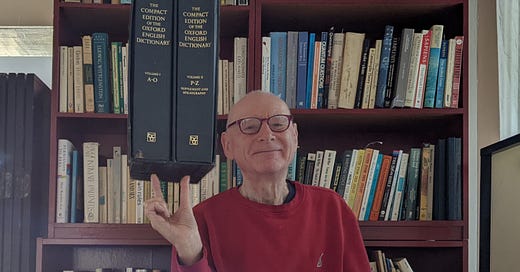More than fire, more than the wheel, language has enabled humans to dominate the earth.
Earlier life responded to the world with reflexes, then emotions, then thoughts, but it was the human invention of language that turned thinking into a superpower.
It started by using words for things we could point at: objects like apples, actions like running, and interior experiences like sadness. These words were reused as metaphors to explain the world, and new words were coined for categories like fruit, color, and time. This process continued and created ideas that we cannot see directly—ideas like God, gravity, or negative numbers.
You can see these metaphors in action today. “Run over the figures for me.” Run? Over? Figures? Each of these words and its meaning have their origins in the physical world.
Language is the way that ideas are passed from one person to another, allowing each person to benefit from the thoughts of many others. In this way, we have constructed a house of understanding whose foundation rests on the ground of experience and whose bricks are ideas stacked one on top of another and held in place by the mortar of logic.
This house was at first limited in size by the capacity of the human mind, but when writing was invented, the insights of individual people could accumulate without end. By building and sharing knowledge in this way over millennia, we have constructed a vast edifice of understanding. Language is the repository of human knowledge.
It is language that has made our cooperative nature vastly more potent. Imagine working with someone else to prepare a Christmas dinner without speaking at all about the menu, shopping, preparation, or timing. We use language to make acts of cooperation detailed and explicit.
Through the combination of thought, language, and cooperation, we have learned how to understand and control the world more than any other species. Human civilization, from textiles to television, is the consequence and proof of this power.
Language is like a new sense. I will explore the implications in later posts.




